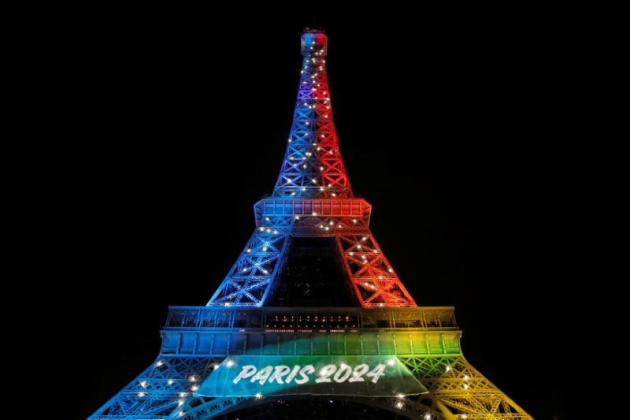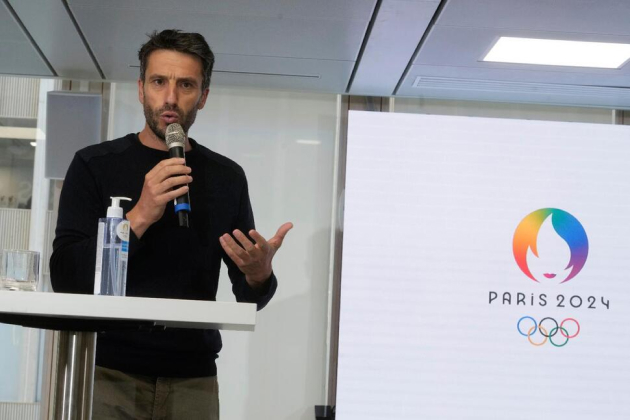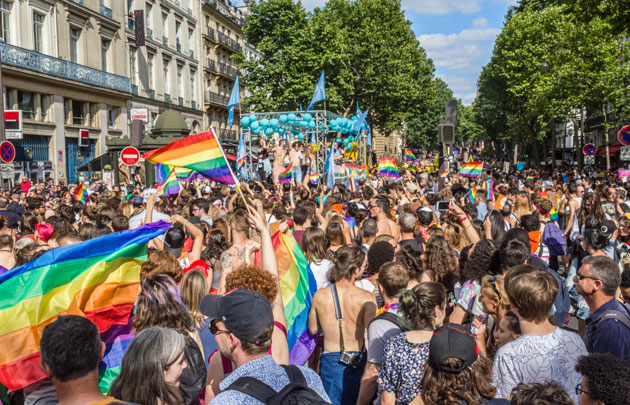Organizers of the 2024 Paris Games intend to seize on the Olympic spotlight to push a message that LGBTQ rights need to progress outside France
PARIS (AP) — Organizers of the Paris Olympics, who gave rainbow colors to their logo Wednesday to mark the international day against homophobia, transphobia and biphobia, aren’t limiting themselves to promises of inclusive Games next year. They say they also intend to seize on the Olympic spotlight to push a broader message that LGBTQ rights need to progress outside France, too.
As the French capital set out plans for a Pride House that will celebrate LGBTQ people during the Olympics and Paralympics, organizers pledged that Olympians and campaigners will be given “plenty of opportunities” to speak for LGBTQ rights at next year’s event.
“We strongly believe that Paris 2024 has a fantastic opportunity to communicate and demonstrate that this situation has to evolve,” said Tony Estanguet, the organizing committee president.
The IOC in 2021 relaxed how it implements a rule which historically had stopped athletes from making political, religious or other statements of belief or identity at the Olympics and it allowed the wearing of rainbow colors at the Tokyo Games in 2021. In Paris, athletes will also be “free to speak and to share their messages” when they’re not competing, Estanguet pledged.
“There are plenty of opportunities for athletes, for associations, to use the platform of the Games to demonstrate that there (are) some situations (that are) not acceptable, that we have to evolve,” he said.
That hasn’t always been the case at the Olympics. LGBT activists who waved rainbow flags in Moscow’s Red Square and protested in St. Petersburg were arrested during the 2014 Olympics in Russia. What was then a new Russian law banning gay “propaganda” also cast a chill over those Winter Games in Sochi and helped stifle any Olympians who might otherwise have wanted to speak up for lesbian, gay, bisexual and transgender communities.
This week also saw the closure of a safe space for the LGBTQ community in Beijing, a critical blow for advocacy groups in the city that hosted the 2022 Winter Olympics.
In France, the refusal this weekend of several players in the French professional soccer league to back an anti-homophobia campaign underscored that there’s also room for progress in the next Olympic host country.
Nantes fined striker Mostafa Mohamed for refusing to play Sunday, when teams across France wore rainbow-colored numbers on their jerseys. Toulouse forward Zakaria Aboukhlal was also among those who didn’t play, writing on Twitter: “I don’t believe I am the most suitable person to participate in this campaign.”
The French sports minister, Amélie Oudéa-Castéra, preferred at a conference on anti-LGBTQ discrimination Wednesday at the Paris Games headquarters to focus on the vast majority of players who did lend support to the campaign.
“It’s not because five to seven players did not want to participate that the whole combat is not progressing,” she said.
The last Summer Olympics in Tokyo proved to be something of a watershed for the LGBTQ community, with a record number of openly gay competitors.
Paris is aiming to build on that progress.
Its Pride House will open in June ahead of the Olympics and run through the Paralympics into September, likely setting up in what’s expected to be the biggest Olympic fan zone, in northern Paris.
this article first appeared here
(17 May | Post in US News.)
#Paris2024
#OlympicMAS
#ParalympicParis2024
#ParalympicMAS
#IMInclusive




